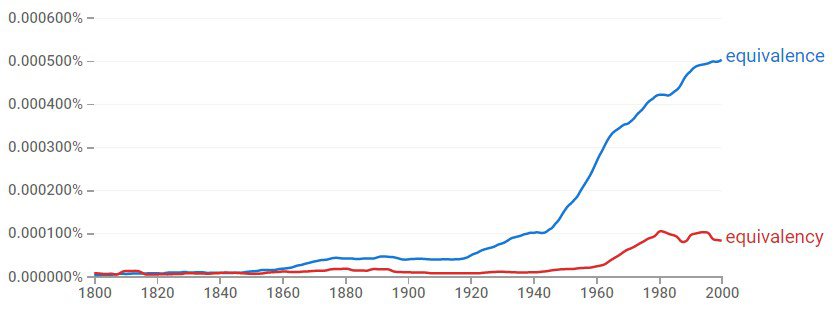Equivalence is the more common form of the noun meaning the state or condition of being equal or interchangeable. Equivalency is usually just a less common variant of equivalence, with the main exception being in relation to American and Canadian educational equivalency exams (see below for examples).
This ngram, which graphs the use of equivalence and equivalency in a large number of English-language books published from 1800 to 2019, shows that there is no competition:

But when we generate a similar ngram graphing the phrases equivalence exam and equivalency exam in American usage, the latter doesn’t even register against the former.
Examples
The main use of equivalency is in high-school equivalency, college equivalency, and related phrases, which mostly appear in North America—for example:
[B]ut jailed students historically had just gotten equivalency degrees. [New York Daily News]
He got his high school equivalency, landed immigrant status, then Canadian citizenship. [Globe and Mail]